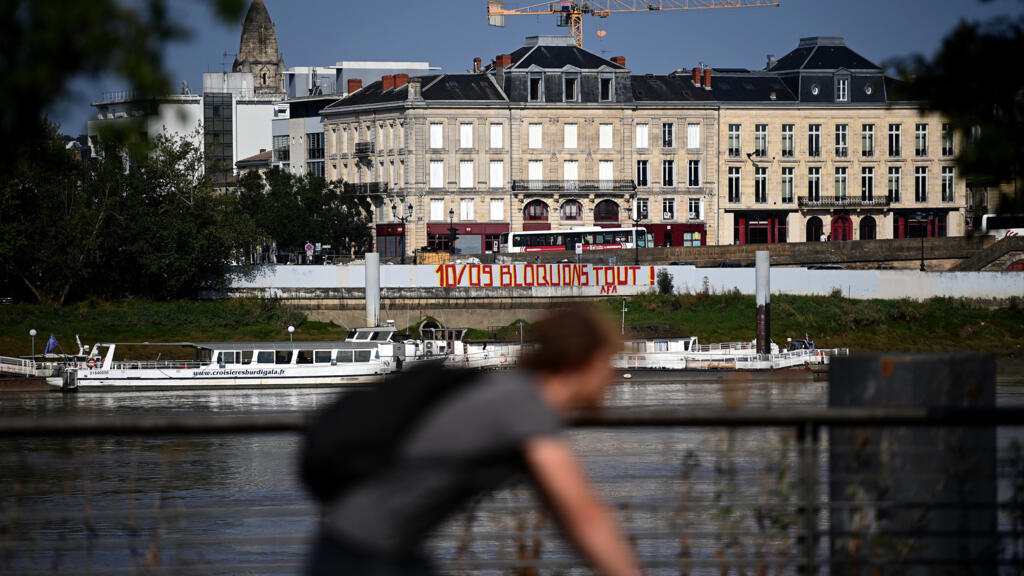
French authorities say they have not detected any large-scale, coordinated foreign interference ahead of nationwide "Let's block everything" protests on 10 September, though some overseas actors are attempting to amplify the mobilisation online.
In April, France formally accused Russia’s military intelligence agency of carrying out cyberattacks against French institutions, including President Emmanuel Macron’s 2017 presidential campaign and organisations linked to the Paris 2024 Olympics.
Questions are now being raised over whether foreign countries are trying to interfere in the Bloquons Tout! (Let's block everything) protests planned for 10 September.
A government source specialising in digital affairs has told public broadcaster Radio France there was no evidence of a “massive” campaign, but pointed to “opportunistic amplification” by networks linked to Iran, Russia and Algeria.
Analysts from French digital intelligence group Projet Fox have tracked hundreds of fake accounts, mainly on X (formerly Twitter), that are attempting to boost hashtags such as #10septembre2025 and #MacronDémission (Macron resign).
A cluster of accounts, attributed to Iran, includes profiles with AI-generated images and repeated calls for blockades or the French president's resignation.

French authorities also cited “influence activities” from pro-government media in Azerbaijan, Russia, Turkey, Iran and Algeria. Outlets such as Caliber in Azerbaijan and Alfadjr in Algeria have recently highlighted Macron’s low popularity and warned of possible unrest. An article on Alfadjr’s website described a “besieged France” threatened by IMF control and rising poverty.
“Everything exploitable is exploited,” an official told France Info, adding that the aim was not so much to interfere directly but relay narratives portraying France as unstable.
Movement calls for September shutdown across France to protest budget cuts
Largely a domestic movement
Officials stress the protests planned for 10 September remain primarily a domestic movement, with French activist networks such as Les Essentiels and local Indignons Nous groups on Telegram and Signal driving calls for action since May.
Social media monitoring platform Visibrain recently noted signs of “astroturfing”, where content purportedly from grassroots movements, but actually funded and organised by corporations or political groups, is created to sway public opinion. But it found the activity largely centred on French left-wing and far-left circles.
The impact of foreign involvement is unclear. “A post with a million views may have no effect, while a hundred views in the right circles could be significant,” said one expert. “So far, these attempts have limited visibility because the mobilisation is already a national topic.”
The 10 September protest, organised under the banner Bloquons Tout, aims to “paralyse” France with strikes, blockades and demonstrations. It is being held just two days after parliament is expected to vote down Prime Minister François Bayrou over his 2026 austerity budget.
French interior minister vows 'utmost firmness' against shutdown protests
While it has been compared to the anti-government Gilets jaunes ("Yellow Vests") protest movement of 2018-2019, it appears far less structured and emerged online only in July this year. It is supported by some trade unions including the CGT and SUD, as well as the hard-left France Unbowed party.
Domestic intelligence services warn of potential blockades targeting transport, energy and defence sites.







